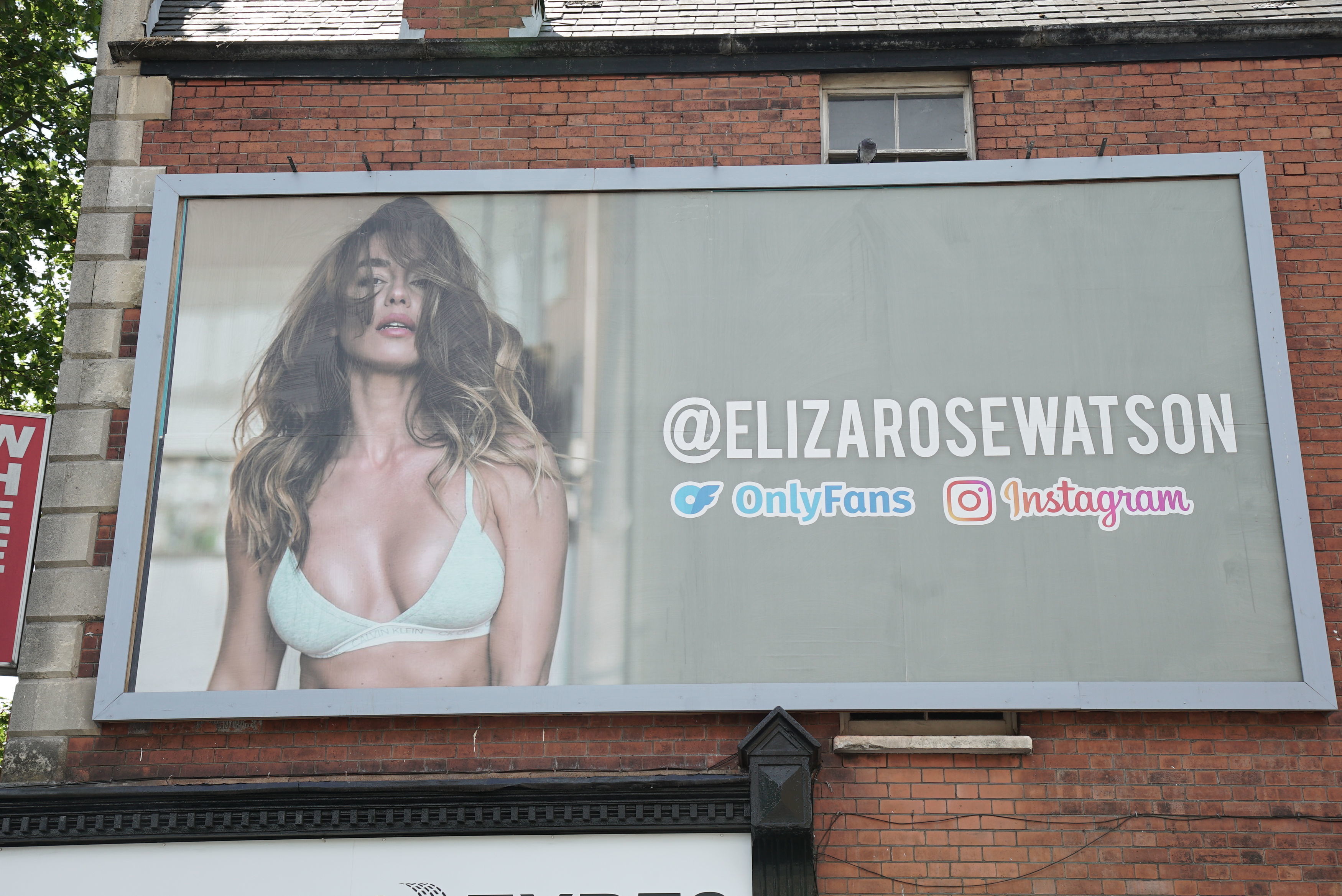It’s prudish to think OnlyFans billboards are wrong. You’re the one with a problem!
Former OnlyFans model Berry Hanna Kraven explains why complaints about adverts featuring a woman in a bra are a perfect example of double standards...

Your support helps us to tell the story
From reproductive rights to climate change to Big Tech, The Independent is on the ground when the story is developing. Whether it's investigating the financials of Elon Musk's pro-Trump PAC or producing our latest documentary, 'The A Word', which shines a light on the American women fighting for reproductive rights, we know how important it is to parse out the facts from the messaging.
At such a critical moment in US history, we need reporters on the ground. Your donation allows us to keep sending journalists to speak to both sides of the story.
The Independent is trusted by Americans across the entire political spectrum. And unlike many other quality news outlets, we choose not to lock Americans out of our reporting and analysis with paywalls. We believe quality journalism should be available to everyone, paid for by those who can afford it.
Your support makes all the difference.Sex sells, we all know this. For as long as advertising has existed, women’s bodies have been used to sell products. So why is it such a shock when us women turn the tables and take full advantage of the beauty ideals that have long been placed on us?
I was an OnlyFans sex worker – and I’m in full support of one of my peers, Eliza Rose Watson, for funding billboards featuring a picture of her in a bra and placing them around London to promote her account. The ads received a number of complaints (of course), but in a rare victory for OnlyFans performers, they were cleared of being “explicit” by the regulator.
The people who reported the ads argued they were “inappropriate” for children to see – but if you think OnlyFans billboards are wrong, you’re probably a prude. And I’d say that you’re the one with the problem.
The ad is suggestive, yes, but no more so than those promoted by underwear retailers or major high street chains. We pass those every day, on the high street. People rarely complain. May I remind you of the 1990s Wonderbra advert, which featured Eva Herzigova in the same amount of fabric with the tagline “Hello Boys”? Or the infamous Levis advert, where a man strips to wash his jeans in the laundrette? Or how about countless other perfume, underwear and sportswear billboards, featuring women (and men) showing off just as much skin as Eliza Rose Watson?
The problem here is not with the sexualised image in advertising that we have grown accustomed to – and accept when the body in question is used to sell a product – it’s in the way we judge women. In this instance, context is everything.
Women’s bodies can be used to sell scent, clothing or airlines – but they are not allowed (apparently) to use their own image to market themselves. How is that fair?
The popularity of sites like OnlyFans is clear for us all to see: its user base grew from 20 million before the pandemic, to more than 120 million. It’s been empowering for online sex workers like me to expand their trade alongside an avid supporter base.
Yet the fact that complaints were made about this particular billboard shows us that it is still, sadly, optimistic to assume the tide has turned; that the rising visibility – and legitimacy – of this kind of work, run by women, would help change society’s attitudes towards the job.
Like any job, sex work is a way to sell your body for a wage with capabilities of poor working environments, danger and demeaning elements that exist in every occupation. More people have turned to sex work as a viable income during the pandemic and to bolster themselves against the cost of living crisis. Yet the image of a sex worker in public still angers people.
This outrage towards the billboard shows that despite the adult entertainment industry being a considerable part of modern society, so many still judge us for it. (This, despite the statistics revealing that in the UK alone, 51 per cent of men and 15 per cent of women, according to YouGov, indulge in some kind of pornography.)
Sexualised imagery has long been a part of advertising, but as long as the ad in question does not overtly sell sex, there is no need for outrage. It is when society forces sex workers back into the shadows – by hiding us from public view – that more and more of us have to accept dangerous working conditions.
If people are really worried about “inappropriate” images of women in their underwear on billboards, then I hope they’ll also complain about every major underwear and sports chain that does it too. That’s where the real hypocrisy lies.



Join our commenting forum
Join thought-provoking conversations, follow other Independent readers and see their replies
Comments